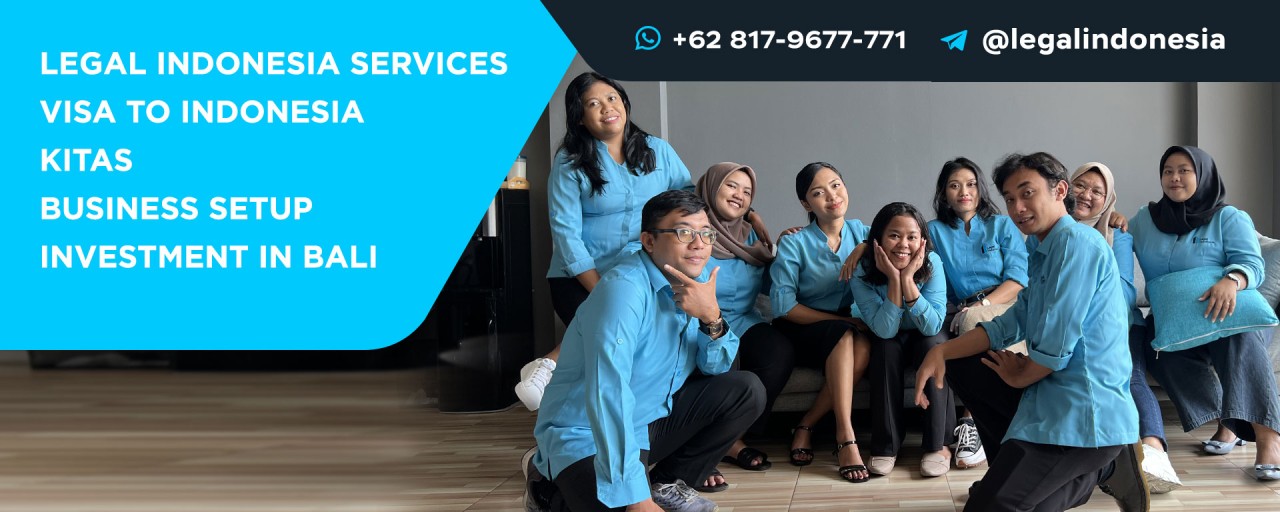
Indonesia continues to attract tourists, investors, digital nomads, and expats, especially in Bali. To avoid fines and immigration issues, it's crucial to understand the difference between visas and residence permits (such as KITAS and others). The Indonesian Immigration Office has issued new guidelines for foreigners who often perceive visas and residence permits as synonymous. However, they mean different things.
So, what's the difference between a visa and a residence permit?
A visa is a permit for entry into Indonesia for a specific purpose (tourism, business, study) and duration. A residence permit (KITAS, KITAP) is a way to legally stay in the country depending on the purpose of your visit. Simply put, a visa is the right to enter, while a residence permit is the right to stay and live.
Visas are issued by Indonesian embassies abroad and through Indonesia's online e-visa system. In contrast, a residence permit is a visa you obtain through the local immigration office once already in Indonesia.
Main Types of Visas
Visa-Free Entry
Indonesia has abolished visa requirements for several countries. This list includes: Brunei Darussalam, Malaysia, Thailand, Vietnam, the Philippines, Cambodia, Singapore, Myanmar, Laos, Timor Leste, Suriname, Colombia, Hong Kong, Turkey, and Brazil.
Citizens of these countries can enter and stay in Indonesia visa-free for up to 30 days without the possibility of extension for purposes such as tourism, family visits, social visits, science, art, performing government duties, attending conferences and exhibitions, meeting with headquarters or representative offices in Indonesia, or transiting to other countries. Visa-free access allows citizens of these countries to visit Indonesia without applying for a visa in advance, but travelers still need to obtain a visa exemption status before their trip.
Visa on Arrival (VoA/eVoA)
Issued for 30 days with the possibility of extension for another 30 days. An ideal option for those not planning to stay long in Bali. The cost of the visa is about $25–30 (500,000 rupiah). It is issued upon entry into the country at one of the official checkpoints. Alternatively, you can get an e-visa on arrival online in advance through the immigration service website.
Visit Visa (Index “C” Visas)
Issued for visits to relatives or short-term business and tourist trips for up to 60 days with the possibility of extension.
Multiple Entry Visa (D1, D2, D12)
Provided for longer stays for business, research, or social purposes, usually for 6 months or 1 year (with the possibility of extension).
All visas must be arranged in advance, each having its own requirements, renewal rules, and conditions. It's essential to choose the type of visa that fits your purpose to avoid problems when entering and staying in Indonesia.
Residence Permits - Your Right to Legally Live in Indonesia
If you plan to stay in Bali for an extended period, you'll need one of the long-term residence permits (KITAS) after entering Indonesia. There are the following types of residence permits:
* Temporary Stay Permit (Visit Stay Permit): issued for temporary stays of up to 6 months. Usually used for family visits or short-term business trips.
* Limited Stay Permit (KITAS): provided for those who intend to live in Indonesia for work, education, investment, or retire. Issued for a period from 6 months to two years with the possibility of extension.
* Permanent Stay Permit (KITAP): grants the right to permanent residence in Indonesia. Provided to those who meet specific criteria, such as living in the country for several years, having a business or family in Indonesia. Requirements and durations may vary depending on the type of KITAS. For example, the spouse of an Indonesian citizen with KITAS can apply for KITAP after two years of marriage. A work KITAS holder can only apply after renewing it four times consecutively.
Why It's Important to Arrange Documents Correctly
- Overstaying a visa without extension results in a fine (IDR 1,000,000 per day) and deportation.
- Lack of a residence permit during a prolonged stay may lead to legal issues, future entry refusals (blacklisting), and expulsion.
We recommend:
✔️ Planning travel dates in advance.
✔️ Choosing the correct type of visa for your purposes (tourism, work, business, investments).
✔️ Timely visa renewals or obtaining KITAS.
✔️ Consulting licensed agencies for reliable support.
Understanding the difference between a visa and a residence permit is the key to a peaceful life in Bali. Don't put off legalization issues until the last day – it will help you enjoy Indonesia stress-free.
We at Legal Indonesia guide you through every step - from the first visa to full legal residence in Bali.
Want a consultation?
Telegram - @legalindonesia / @LegalIndonesiaBot
WhatsApp - https://wa.me/628179677771
Or visit our website
We help foreigners live and thrive in Bali legally and without unnecessary hassle.


You can add one right now!